Milestones of the History of the Hungarian Parliament
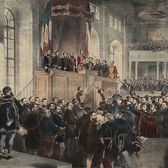
The first bicameral representative parliament replacing the former parliament of nobility is set up by the April Laws of 1848 (Act IV of 1848). The Members of Parliament are elected in constituencies, based on the census of property and education (Act V of 1848). The new parliament starts its work on 5 July in Buda. During the War of Independence (1848-1849) it is forced to move to other towns (Pest, Debrecen, Szeged and Arad). The last session in Arad is held on 11 August 1849.

After having proclaimed the October Diploma, Austrian Emperor Francis Joseph convokes the Parliament on 6 April 1861 to settle the constitutional relations between Hungary and the emperor. He does not accept the Hungarian proposals and dissolves the Parliament 22 August 1861.
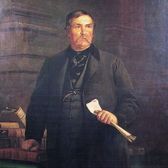
The political and economic situation urges the ruler and Hungary to restore the Constitution and to settle relations. The Parliament reassembles on 14 December 1865 to prepare a Compromise.
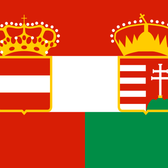
The Austro-Hungarian Monarchy, a bi-central dual state is established with a common monarch. Foreign affairs, defence and finance are declared as joint affairs. Austria and Hungary have their own bicameral parliaments. The power of the House of Magnates of the Hungarian Parliament is weaker and it is subordinated to the House of Representatives.
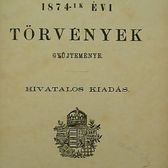
The Act on Election Law of 1848 is amended. Emphasis is shifted from property ownership to the amount of tax paid. Elections are to be held every five years instead of the former three years.
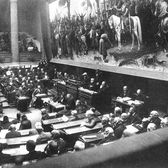
The House of Magnates of the Parliament is reformed. Some of its members hold office at the imperial court or in the central administration; fifty members are appointed by the monarch for life; dignitaries of the Catholic Church, Protestant Churches and the Eastern Orthodox Church are also included. An aristocratic man may be a member by birth in case he pays a certain amount of direct tax.
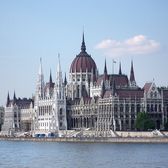
The Houses of Parliament moves to a new building, designed by Imre Steindl. That has been the building of the Parliament ever since. New election laws are adopted in 1913 and also in 1918 but they were not implemented because of the outbreak of World War I.
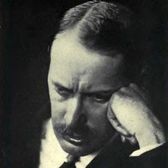
In October a revolution breaks out in Budapest. At the end of World War I a number of new states come into being on the territory of what was the Austro-Hungarian Monarchy. The Parliament votes to dissolve itself and for the next few months revolutionary governments issue statutes with sweeping consequences.
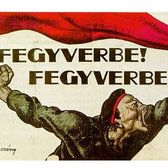
In March Social Democrats and Communists seize power, declare the Hungarian Soviet Republic and form a Revolutionary Governing Council. At the same time the National Assembly of Councils takes place of parliament as the legislative body of the Republic of Councils; however it operates along completely different lines from traditional parliaments.
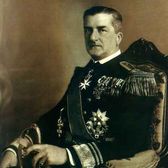
A unicameral national assembly is elected through universal suffrage, which includes women, by secret ballot on 25-26 January. In consideration of the special historical circumstances, the elections are regulated in a decree (Decree of PM 5985/1919) not in a law. Later the suffrage is narrowed. The constituencies are separated into two groups: constituencies in rural areas and those in urban areas. Elections are held by an open vote and a secret vote, respectively. In major towns and Budapest voting is for party lists.
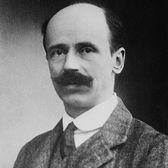
First national elections are held as regulated by Government Decree 2200/1922. Census suffrage as based on property, tax paid and education is reintroduced. Voting in an open ballot is reestablished except for Budapest and some major towns.
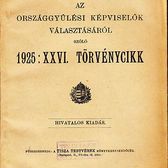
Act XXVI on National Elections, based on the above mentioned government decree is passed. In addition to Budapest and neighbouring localities, voting for lists is introduced in towns that return more than one MP.
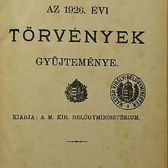
Act XII of 1926 restores the Upper House of the Parliament. Its members are state and church dignitaries, those elected by state institutions and a maximum of 40 persons appointed by the head of state. Its jurisdiction is narrower than it was earlier.
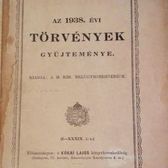
The new Electoral Law (Act XIX of 1938) states universal voting by secret ballot. Outside Budapest voting is for individual candidates and for party lists. Constituents can vote according to different voting procedure for candidates and for lists (“double suffrage”). The conditions of eligibility become stricter.
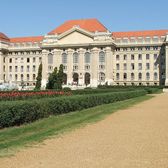
The unicameral Provisional National Assembly is convoked in Debrecen, a town that is controlled by the Soviet Red Army.
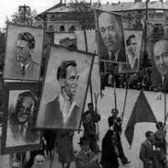
Act VIII of 1945 introduces universal and equal suffrage by secret ballot. Votes are cast for party lists. Parliamentary elections are held on 4 November 1945. Although the non-Communist parties wield majority in the Parliament, Soviet [Russian] authorities push through a “grand coalition government” that includes Communists.
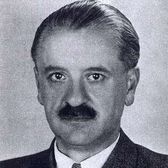
As of 1 February 1946, Hungary’s form of state is a republic instead of a kingdom.
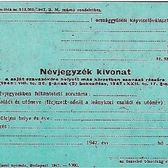
Early parliamentary elections are held 31 August 1947. The Soviet-backed Communist Party rigs elections results and stops at nothing to weaken democratic forces.
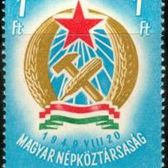
At the parliamentary elections on 15 May 1949 voters have a single party list to choose from. The Communists seize full power. The National Assembly enacts a Stalinist Constitution (Act XX of 1949). The new form of state is a people’s republic. Until 1989 Hungary is a “socialist” country, in which the role of the Parliament is formal. The Presidential Council issues law-decrees. The Communist Party nominates candidates to Parliament. At parliamentary elections there is a single party list, later on “election” is from a single candidate in each constituency. Parliament was convoked rarely and for a few days only with the sole purpose of rubberstamping decisions of the Party.
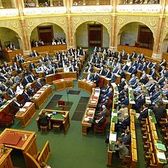
The electoral law is amended in such a way that the umbrella organization Patriotic People’s Front loses the monopoly it received from the Communist Party to put up candidates for Parliament. For the first time under socialism, 10.5% of the new Members of Parliament are returned without the People’s Front’s support.

Epoch-making external and internal changes press the Parliament to adopt laws that are to usher in the transition.
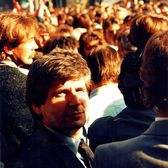
Under the influence of epochal changes in politics at home and abroad, the Hungarian Parliament begins adopting laws that are eventually to prepare and implement the transition to a multi-party system and market economy.
The ruling party and newly founded opposition parties hold National Round Table talks. Then Parliament adopts a thoroughly amended Constitution (actually the Act XX of 1949 amended). On 23 October the amended Constitution is promulgated and the Republic of Hungary is proclaimed. Act XXXIV of 1989 on the Election of Members of Parliament, which opens the road for free, multi-party elections, and other fundamental laws on the rights of citizens are enacted.
The Hungarian election system is a mixed system with 176 MPs being elected by individual constituencies and 210 from 20 regional lists and from a national compensatory list. Elections are to be held in every fourth year.
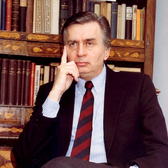
On 25 March and 8 April 1990 parliamentary elections are held. The democratic opposition wins and forms a coalition government on 23 May 1990. A few months later, the autumn local government elections crown the transition from a single-party authoritarian state to a multi-party democracy. Transition is bloodless with battles fought in legislative and political fields.
| Parliamentary term: 28 June 1994 - 17 June 1998 | |||
|---|---|---|---|
| Parliamentary Groups (rate of mandates on the Constituent sitting, %) |
|||
| Hungarian Democratic Forum | 42.7 | governmental | |
| Independent Smallholders, Agrarian Workers and Civic Party | 11.4 | governmental | |
| Christian Democratic People’s Party | 5.4 | governmental | |
| Alliance of Free Democrats | 24.5 | opposition | |
| Hungarian Socialist Party | 8.5 | opposition | |
| Independent MPs | 1.8 | ||
| Speaker | Árpád Göncz (2 May 1990 – 3 August 1990) György Szabad (3 August 1990 – 27 June 1994) |
||
Hungary accedes to the Council of Europe on 6 November 1990. It is the twenty-fourth European country to join that organization.

| Parliamentary term: 28 June 1994 - 17 June 1998 | |||
|---|---|---|---|
| Parliamentary Groups (rate of mandates on the Constituent sitting, %) |
|||
| Hungarian Socialist Party | 54.2 | governmental | |
| Alliance of Free Democrats | 18.1 | governmental | |
| Hungarian Democratic Forum | 9.8 | opposition | |
| Independent Smallholders, Agrarian Workers and Civic Party | 6.7 | opposition | |
| Christian Democratic People’s Party | 5.7 | opposition | |
| Alliance of Young Democrats (Fidesz) | 5.2 | opposition | |
| Independent MPs | 0.3 | ||
| Speaker | Zoltán Gál | ||

| Parliamentary term: 18 June 1998 - 14 May 2002 | |||
|---|---|---|---|
| Parliamentary Groups (rate of mandates on the Constituent sitting, %) |
|||
| Fidesz - Hungarian Civic Party | 38.4 | governmental | |
| Independent Smallholders, Agrarian Workers and Civic Party | 14.4 | governmental | |
| Hungarian Democratic Forum | 4.4 | governmental | |
| Hungarian Socialist Party | 34.7 | opposition | |
| Alliance of Free Democrats | 6.2 | opposition | |
| Hungarian Justice and Life Party | 3.6 | opposition | |
| Independent MPs | 0.3 | ||
| Speaker | János Áder | ||

Hungary becomes the member state of the North Atlantic Treaty Organisation.

| Parliamentary term: 15 May 2002 - 15 May 2006 | |||
|---|---|---|---|
| Parliamentary Groups (rate of mandates on the Constituent sitting, %) |
|||
| Hungarian Socialist Party | 46.1 | governmental | |
| Alliance of Free Democrats | 5.2 | governmental | |
| Fidesz – Hungarian Civic Party | 42.5 | opposition | |
| Hungarian Democratic Forum | 6.2 | opposition | |
| Independent MPs | 0.0 | ||
| Speaker | Katalin Szili | ||

From 1 May Hungary is a member of the European Union.

| Parliamentary term: 16 May 2006 - 13 May 2010 | |||
|---|---|---|---|
| Parliamentary Groups (rate of mandates on the Constituent sitting, %) |
|||
| Hungarian Socialist Party | 49.2 | governmental | |
| Alliance of Free Democrats | 5.2 | governmental | |
| Fidesz – Hungarian Civic Party | 36.5 | opposition | |
| Christian Democratic People’s Party | 5.9 | opposition | |
| Hungarian Democratic Forum | 2.9 | opposition | |
| Independent MPs | 0.3 | ||
| Speaker | Katalin Szili ( 16 May 2006 – 14 September 2009) Béla Katona (14 September 2009 – 13 May 2010) |
||

| Parliamentary term: 14 May 2010 - 5 May 2014 | |||
|---|---|---|---|
| Parliamentary Groups (rate of mandates on the Constituent sitting, %) |
|||
| Fidesz – Hungarian Civic Union | 58.8 | governmental | |
| Christian Democratic People’s Party | 9.3 | governmental | |
| Hungarian Socialist Party | 15.3 | opposition | |
| Jobbik – The Movement for a Better Hungary | 12.2 | opposition | |
| Politics Can be Different (LMP) | 4.1 | opposition | |
| Independent MPs | 0.3 | ||
| Speaker | Pál Schmitt (14 May 2010 – 5 August 2010) László Kövér (6 August 2010 - present) |
||
An amendment of the Constitution, enacted on 25 May 2010, provides that there will be 199 MPs (instead of the present 386) and further MPs may be elected to represent the national and ethnic minorities (not more than 13). Those new rules are to be implemented for the first time during the parliamentary elections of 2014.

From 1 January till 30 June Hungary holds the rotating EU Presidency for the first time.
On April 18 2011 the Hungarian Parliament adopted Hungary’s new Fundamental Law.

On 1 January 2012 the new Fundamental Law came into force.

| Parliamentary term: 6 May 2014 - present | |||
|---|---|---|---|
| Parliamentary Groups (rate of mandates on the Constituent sitting, %) |
|||
| Fidesz – Hungarian Civic Union | 58.8 | governmental | |
| Christian Democratic People’s Party | 8.0 | governmental | |
| Hungarian Socialist Party | 14.6 | opposition | |
| Jobbik – The Movement for a Better Hungary | 11.6 | opposition | |
| Politics Can be Different (LMP) | 2.5 | opposition | |
| Independent MPs | 4.5 | ||
| Speaker | László Kövér | ||